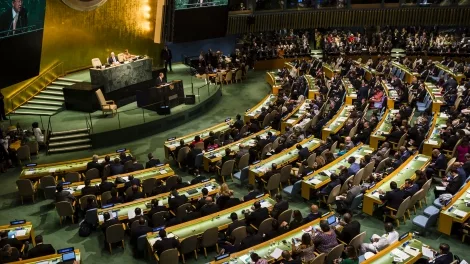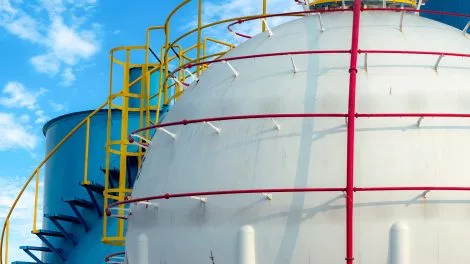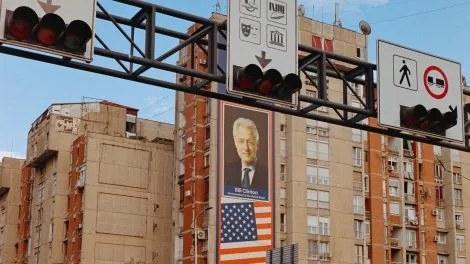Governments across emerging Europe are failing to protect their citizens from toxic air pollution, with most Europeans still breathing filthy air in their cities, according to new data.
Better air quality has led to a significant reduction of premature deaths over the past decade in Europe, according to a new report from the European Environment Agency (EEA). However, the latest official data show that almost all Europeans still suffer from air pollution, leading to about 400,000 premature deaths across the continent each year.
The EEA’s Air quality in Europe — 2020 report shows that of six member states which exceeded the European Union’s limit value for fine particulate matter (PM2.5) in 2018, five were in emerging Europe: Bulgaria, Croatia, Czechia, Poland, and Romania. The sixth was Italy.
Only four countries in Europe (and only on in emerging Europe — Estonia) had fine particulate matter concentrations that were below the World Health Organisation’s (WHO) stricter guideline values. The EEA report notes that there remains a gap between EU’s legal air quality limits and WHO guidelines, an issue that the European Commission seeks to address with a revision of the EU standards under the Zero Pollution Action Plan.
50,000 premature deaths in Poland alone
Exposure to fine particulate matter caused about 417,000 premature deaths in 41 European countries in 2018, according to the EEA assessment. About 379,000 of those deaths occurred in the EU28 where 54,000 and 19,000 premature deaths were attributed to nitrogen dioxide (NO2) and ground-level ozone (O3), respectively.
The highest number of premature deaths in emerging Europe was in Poland, at almost 50,000.
However, EU, national and local policies and emission cuts in key sectors have improved air quality across Europe, the EEA report shows. Since 2000, emissions of key air pollutants, including nitrogen oxides (NOx), from transport have declined significantly, despite growing mobility demand and associated increase in the sector’s greenhouse gas emissions. Pollutant emissions from energy supply have also seen major reductions while progress in reducing emissions from buildings and agriculture has been slow.
As a result, around 60,000 fewer people died prematurely due to fine particulate matter pollution in 2018, compared with 2009. For nitrogen dioxide, the reduction is even greater as premature deaths have declined by about 54 per cent over the last decade. The continuing implementation of environmental and climate policies across Europe is a key factor behind the improvements.
Nevertheless, the numbers remain high and green campaigners have said governments must act urgently, not least as governments have failed to meet EU targets. Under EU rules, every member state should have submitted a plan for bringing air pollution within health limits in 2018. However, Italy’s plan is still at draft stage, while Greece, Luxembourg and Romania have yet to submit any plan.
Delay costs lives
Margherita Tolotto, senior policy officer at the European Environmental Bureau, which represents campaigning groups across the EU, said: “How many wake-up calls do government officials need to take on air pollution? Their delay is costing us our health and a safe environment. They know what needs to be done to improve air quality: cleaner energy and industrial production, greener and smarter transport, and sustainable farming.”
Virginijus Sinkevičius, the EU’s environment commissioner, said progress had been made but recognised that member states must do more, and promised an action plan as part of the European Green Deal.
“It is good news that air quality is improving thanks to the environmental and climate policies we have been implementing,” he said. “But we can’t ignore the downside – the number of premature deaths due to air pollution is still far too high. With the European Green Deal we have set ourselves an ambition of reducing all kinds of pollution to zero. If we are to succeed and fully protect people’s health and the environment, we need to cut air pollution further and align our air quality standards more closely with the recommendations of the WHO.”
—
Unlike many news and information platforms, Emerging Europe is free to read, and always will be. There is no paywall here. We are independent, not affiliated with nor representing any political party or business organisation. We want the very best for emerging Europe, nothing more, nothing less. Your support will help us continue to spread the word about this amazing region.
You can contribute here. Thank you.

Published by: emerging-europe.com




